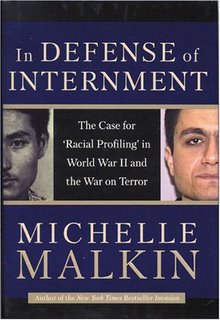Now that the makeups have been madeup, I can post links to the articles selected for the exam.
The Federalism case was
Reach of Clean Water Act Is at Issue in 2 Supreme Court Cases This Week
February 20, 2006, Monday
By FELICITY BARRINGER (NYT); National Desk
Late Edition - Final, Section A, Page 8, Column 1, 1309 words
The Times places their content behind subscription service after a week, so to read about the case, we can go the Washington Post
Court Hears Water Act Arguments
Control of Wetlands at Issue in Michigan Case
By Charles Lane
Washington Post Staff Writer
Wednesday, February 22, 2006; A06
All water flows downhill to the sea. But at what point does it enter the federal government's jurisdiction?
That was the question at the Supreme Court yesterday, as the justices heard arguments in the first major environmental case of the Roberts Court era -- a test of the Clean Water Act that could determine the scope of federal authority over the development of wetlands nationwide.
As enacted in 1972, the landmark environmental legislation gave federal regulators the power to control the discharge of pollutants into "navigable waters." On the theory that what gets dumped upstream eventually winds up downstream, the government has interpreted that phrase to include not only large lakes and rivers, but also their smaller tributaries and wetlands near those tributaries.
The Bush administration, backed by environmental organizations and more than 30 state governments, says that any narrower interpretation would cripple the Clean Water Act. States alone could not do the job, the administration argues.
"It's a bit much to ask legislators in Minnesota and Wisconsin to restrict local development to protect water in Mississippi," Solicitor General Paul D. Clement told the court yesterday.
But property owners, backed by homebuilders, developers, farmers, ranchers and some water districts from the arid West, say that view would federalize every drop of water in the country, effectively putting Washington in control of development miles away from any recognizably navigable waters.
Slate's Dahlia Lithwick has more: She notes that there are long lines to see Alito (" It's like he thinks we are all staring at him, which we are."), and she challenges our view of federalism cases as "Feds-versus-States" --
Solicitor General Paul Clement has 40 minutes to defend against all this while Scalia and Roberts take turns punishing him with the hydrological connection stick. Scalia—who last week announced that proponents of a "living constitution" are "idiots," tells Clement that it's both "absurd" and "extravagant" to call a drainage ditch "waters of the United States." Roberts asks whether "one drop of water a year" constitutes a significant nexus to navigable waters. And Scalia invokes "storm drains," "puddles," and "rain water" to imply that all of this controversy involves trivial, ugly, brown water.
Justice Stephen Breyer speaks for the first time at the end of the argument, to ask Clement for empirical evidence that wetlands really do act as a sponge. The new gestalt seems to be to assume that the federal government is trying to gobble up private landowners' and states' rights, even where it seems clear, as here, that the states themselves want it to play that role, and that the consequences to the environment might be disastrous.
The Other Case involved the "Domestic Wiretapping" by the NSA:
Facing Pressure, White House Seeks Approval for Spying
By SHERYL GAY STOLBERG and DAVID E. SANGER
Published: February 20, 2006
After two months of insisting that President Bush did not need court approval to authorize the wiretapping of calls between the United States and suspected terrorists abroad, the administration is trying to resist pressure for judicial review while pushing for retroactive Congressional approval of the program.
The movement seems to have come from Republican members of congress who the White House cannot count on ratifying the program after the fact, as seen in a couple paragraphs in the article:
But some lawmakers have given glimpses of the conversations, including Senator Olympia J. Snowe, Republican of Maine, a member of the intelligence panel who was prepared to vote with Democrats on Thursday to open an inquiry until the White House agreed to negotiate.
Ms. Snowe, who favors some kind of judicial review, characterized the talks as a "fundamental shift" in the debate. "I think there has been a quantum leap," she said in an interview, adding that senators were "really trying to wrestle the best way to craft a measured bill."
The chairman of the Senate Intelligence Committee, Pat Roberts of Kansas, has said he would prefer to see the program brought under the authority of the Foreign Intelligence Surveillance Court. Mr. Roberts also says he is concerned that in an era of fast-paced electronic surveillance, the court may not be able to issue warrants quickly enough to meet the needs of the program.
Snowe of course is a Northeast state Republican, traditionally more moderate. Kansan Roberts has worked to support Bush, but has been excorciated back home in Kansas:
Oversight
EDITORIAL: ROBERTS' CREDIBILITY ON LINE
Many Kansans, including members of The Eagle editorial board, have long admired Sen. Pat Roberts for his plainspokenness and reputation for fair brokering of issues.
So it's troubling that Roberts, chairman of the Senate Intelligence Committee, is fast gaining the reputation in Washington, D.C., as a reliable partisan apologist for the Bush administration on intelligence and security controversies.
We hope that's not true. But Roberts' credibility is on the line.

